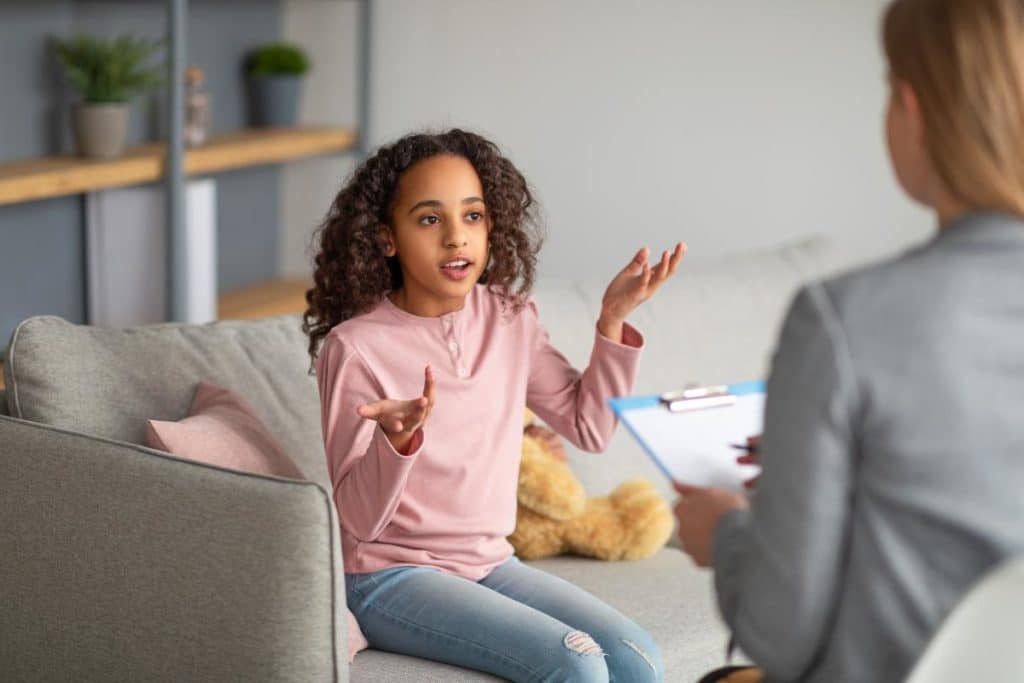The COVID-19 pandemic created a lot of loss and grief for teens and families across the country. A sudden loss can be very traumatizing for teens, and they may not have healthy coping mechanisms for dealing with the loss. If they don’t talk about their feelings, it can lead to substance abuse, failing grades, and worsening mental health. A grief and loss therapy program can give teens the support they need to cope with loss in a healthy manner.
At Imagine Seattle, we provide teen boys and girls aged 12-17 with compassionate support after the loss of a parent, sibling, or close friend. We use evidence-backed behavioral therapies to help teens process their feelings and develop coping skills that will benefit them now and in the future. If your teen son or daughter is struggling with their mental health after the death of a loved one, call 888.346.0473 to speak with our caring staff about our grief and loss therapy program.
Coping with Loss
Griefing is a natural process that helps us cope with the death of a loved one and is different for each person. Some teens may withdraw from friends and family, while others will always want to be around a parent, sibling, or close relative. In some cases, teens may act out in other ways, including disruptive behavior at school, turning to drugs and alcohol, or participating in other self-destructive behavior.
Some of the signs that your teen is having difficulty coping with loss include:
- Excessive clinging
- Unable to focus
- Failing grades
- Insomnia/Hyposonmia
- Feelings of guilt
- Fear of abandonment
- Excessive crying
At Imagine Seattle, we work with teens in group and private therapy to develop healthy coping mechanisms for getting over the death of a parent, sibling, or close friend. Grief can be very devastating to teens, and if they don’t get help now, it will impact their development and ability to lead a successful life.
Developing Healthy Coping Mechanisms for Dealing with Loss
There are many ways teens can learn how to cope with loss by participating in behavioral therapy that is proven to be effective in treating depression, substance abuse, and other mental health disorders that are common with the grieving process.
Some of the ways that teens will develop healthy coping mechanisms include:
- Cognitive-behavioral therapy – CBT is one of the most effective forms of treatment for teens dealing with grief. It teaches them how their thoughts and feelings dictate their actions and how they have the power to replace them with more positive thinking.
- Dialectical behavior therapy – DBT is for teens whose symptoms are more severe and are causing self-harming behavior or suicidal thoughts. It helps teens see themselves and the world around them in a new light through mindfulness techniques and distress tolerance skills.
- Family therapy – Parents and siblings are an essential part of the grieving process and will be involved in grief therapy. Everyone has a chance to talk about their feelings in a safe and judgment-free environment to bring everyone closer together.
Forming healthy coping mechanisms early on is essential for teens who are struggling with the grieving process. It will help them cope with their feelings today and prepare them for future challenges as they grow up.
Find Relief With Grief and Loss Therapy at Imagine Seattle
At Imagine Seattle, we support teen boys and girls between 12 and 17 who are struggling with the loss of a parent, sibling, or close friend. We take the time to get to know each patient and create a safe space for them to talk about their feelings and learn how to process them in a healthy way. We offer a full range of beneficial therapies, including:
- Cognitive-behavioral therapy
- Dialectical behavior therapy
- Co-occurring disorders
- Family therapy
- Trauma therapy
- Crisis intervention
- Teen relationship counseling
For more information about our grief and loss therapy program, call 888.346.0473 or fill out our online form today, and we will get back to you within 24 hours.




